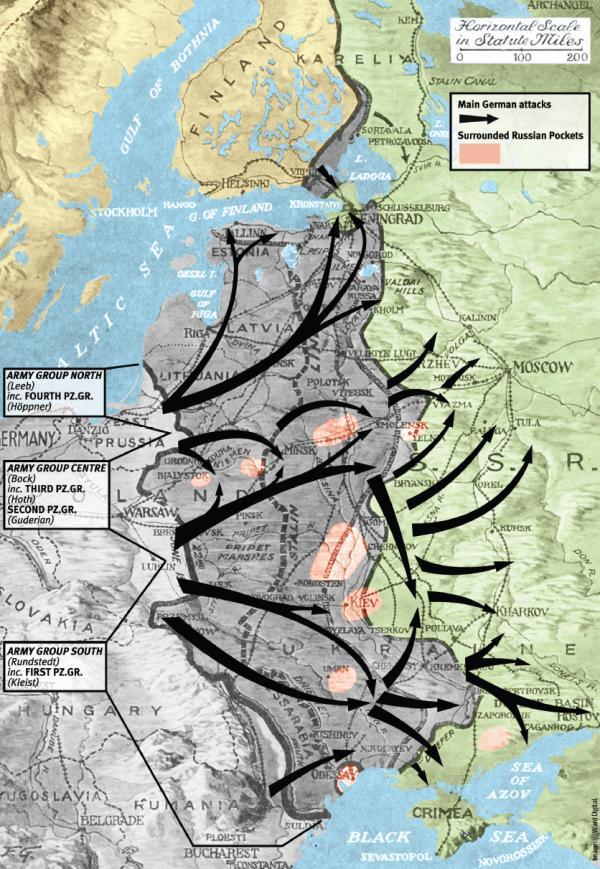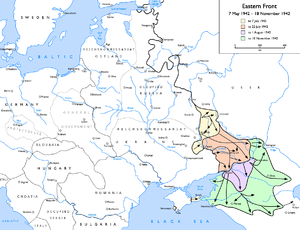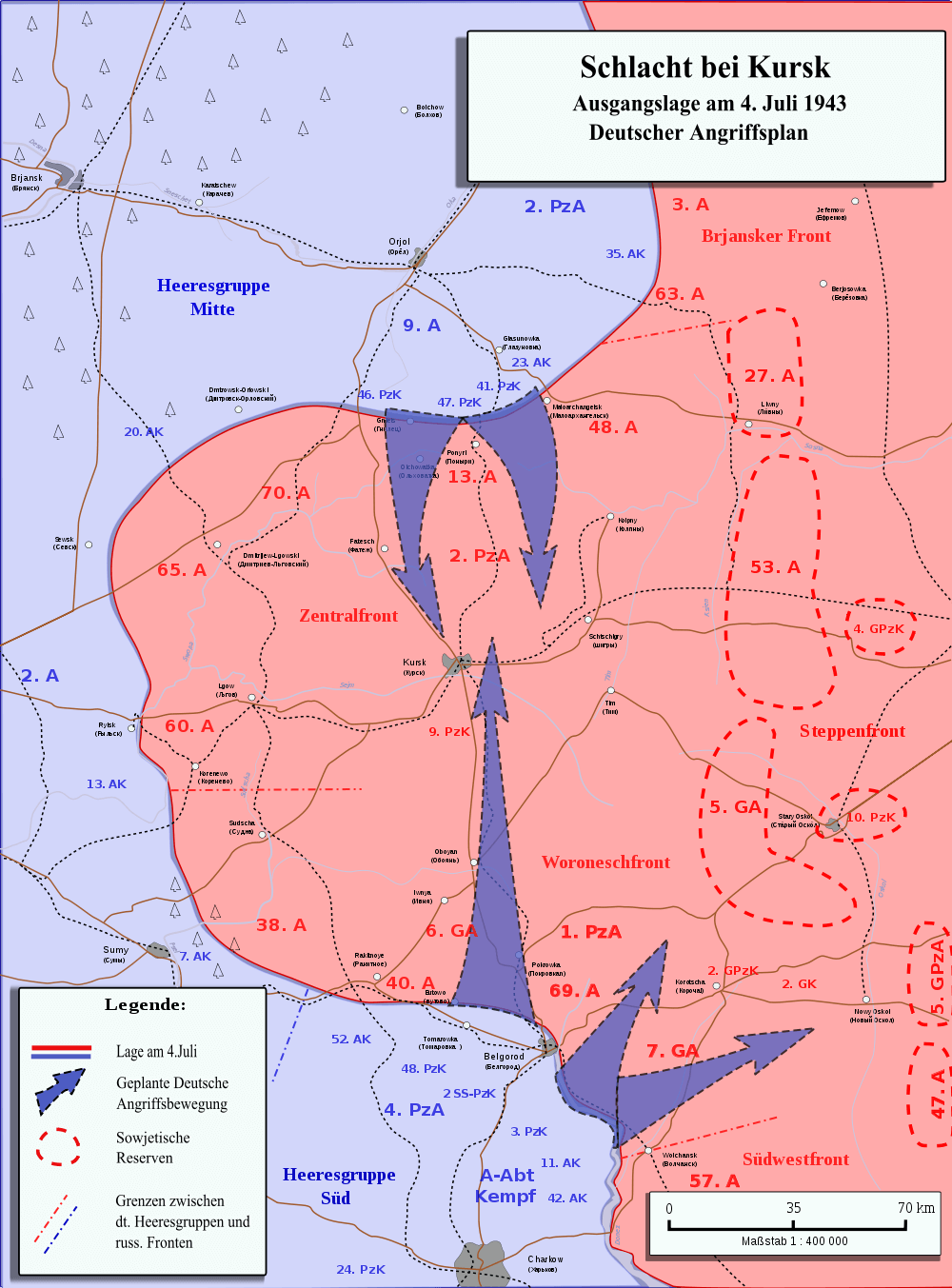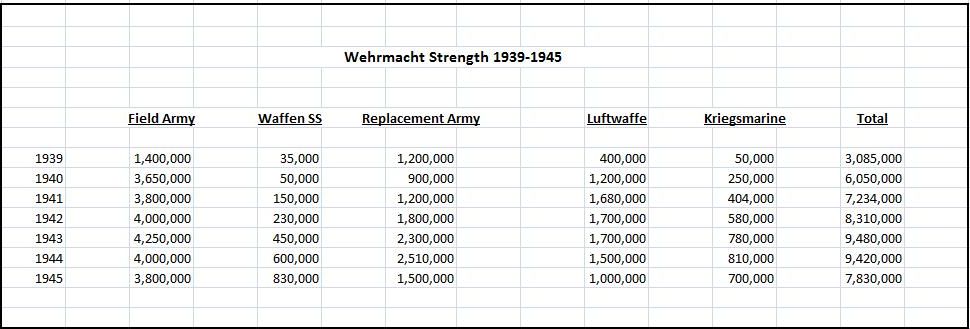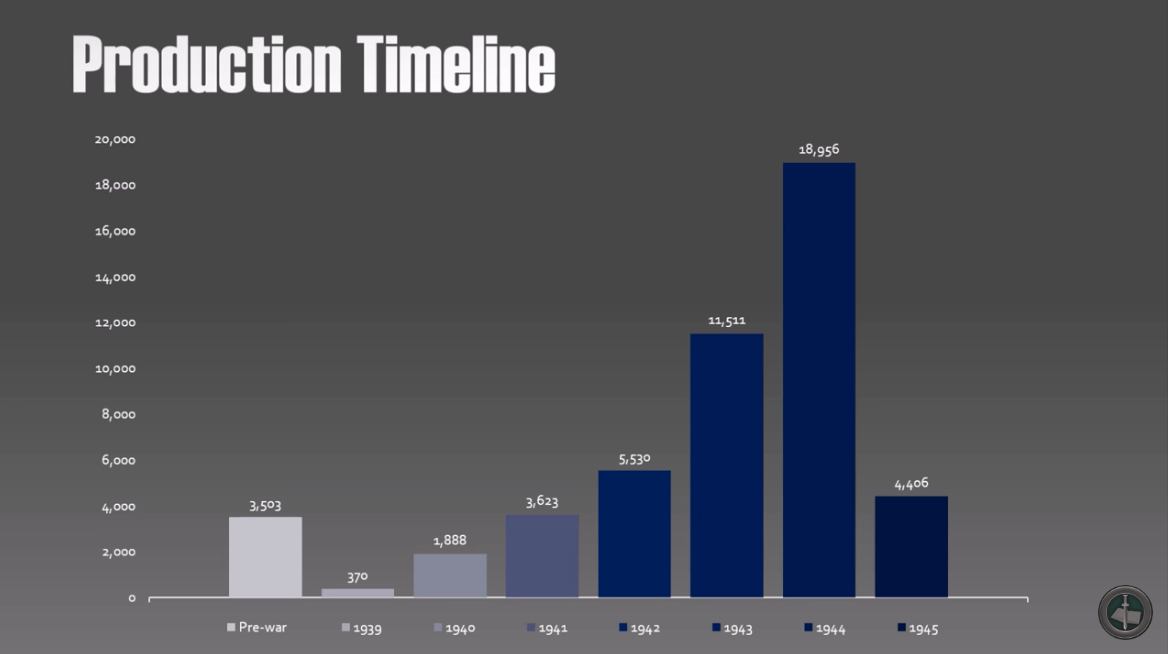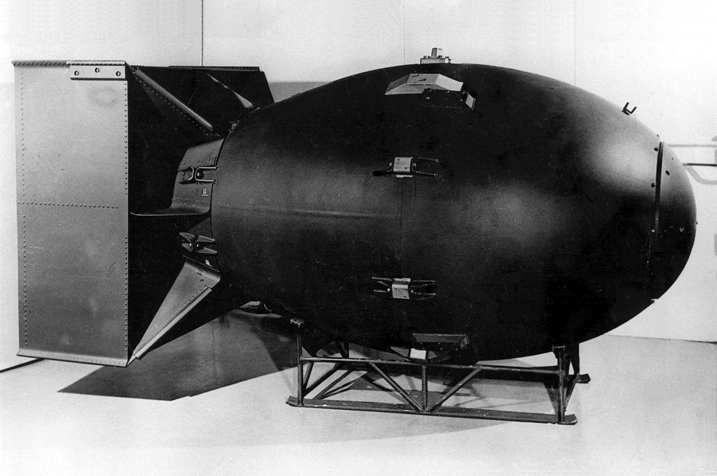I agree with many above points, however there are other things to consider.
Regarding taking Moscow issues one has to consider the following:
-
After turning Guderian, etc to Kiev, it was Hitler who order them back to attack Moscow.
Hitler could have told them to continue going south for oil areas (or even half to go south). Waste of valuable fuel to go south first and then going back to towards Moscow again. -
Hitler supposedly planned to wipe the city of Moscow off the map and to put a big reservoir over the area to prevent it being used ever again. Also, if the city of Moscow surrender to the German Army, Hitler had given an order not to accept the it. I think this is one of reasons why Hitler order them back to Moscow.
(My source for not aceepting the surrender and what was to be done with Moscow above is the U.K. T.V. show “Battlefield” episode ‘Battle for Russia’ about 1:42:30 to 1:42:55 mark or so. Someone has it up now YouTube, but I have the DVD and seen it many times on T.V.). -
The reason some historians suggest that the success of Operation Blue (summer of 42) - advance on Stalingrad and Caucasus oil was as U.S.S.R. figured Germans would attack towards Moscow again. (Roughly 50% of Russian Army was around Moscow areas and only 10% was in the south).
Thus, the attack Moscow can be said to have a value in 1941 to. Also, if U.S.S.R picked up on Germans were only going for the south then Russians could have put much more troops in the south then they actually did. -
Moscow is unimportant, correct, but, it was a important political, Militarily, a big transport hub, and had some factories. Thus, important just like Stalingrad become important to Hitler in 42. Stalingrad has no Oil, but Hitler wanted it and waste time, men and fuel on it.
Or to put it another way the same problem that Kiev caused the Germans in 41 would have happened in the center if they attacked only in the south in 41. Not mention the northern front.
So you can blame the German Army, but Hitler is one the one who kept changing his mind on things, so blame can go up to top to.
Do not get me wrong, I like it and I have heard others say it to, regarding attacking to the south only. However, there are problems with it and some suggest to that might not have worked.
One last point is Blitzkrieg strength is to attack a weak point, if you only go south for the Oil fields only, it limits the front and the number of weak points dramatically. And one could end up doing Kursk style battle in the south in 41, by that I mean they know where you are going, can build all or most defences lines in the south, etc.
